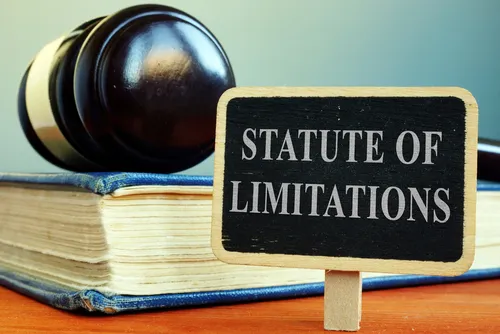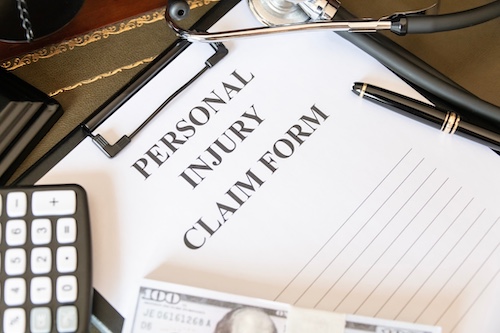Statute of Limitations in Georgia: What Every Accident Victim Should Know
The statute of limitations determines how long an injured person has to file a personal injury claim in Georgia. Missing this deadline can permanently block your right to recover compensation for medical expenses, lost wages, and pain caused by someone else’s negligence.
Every accident victim should understand how this legal time frame works, what exceptions apply, and why contacting a Fayetteville personal injury lawyer early can make the difference between a successful claim and a time-barred case.
What is Georgia’s Statute of Limitations for Personal Injury Cases?
Understanding Georgia’s statute of limitations is the first step in protecting your right to fair compensation after an accident. Every injured person must know how long they have to file a personal injury claim.
The Two-Year Deadline Under Georgia Law
Under O.C.G.A. § 9-3-33, most personal injury claims in Georgia must be filed within two years from the date of the injury. The statute of limitations defines the legal period during which an injured party can bring a lawsuit for damages such as medical expenses, lost wages, and pain and suffering. Once the two-year window closes, the court may dismiss the personal injury lawsuit as time-barred.
When the Time Period Begins
The limitations period begins on the date the injury occurs. For car accidents, that date is usually the day of the crash. In other personal injury cases, it starts when the injured person immediately realizes they were harmed by someone else’s negligence. Waiting too long to act can eliminate the chance to file lawsuits or recover maximum compensation.
Personal Injury Claims Covered by the Statute
The two-year statute applies to most personal injury cases in Georgia, including car accidents, slip and fall incidents, dog bites, and other injuries caused by another party’s negligence. Property damage claims follow a different rule and allow four years to file. Knowing the correct time limit ensures the personal injury process stays within Georgia’s legal system requirements.
Why Acting Early Matters
The statute of limitations affects every part of a personal injury claim. Insurance companies and at-fault parties often use the time limit to avoid paying fair compensation. An experienced Fayetteville personal injury lawyer can calculate your filing deadline, gather supporting evidence, and begin the legal action before time runs out. Acting quickly protects your right to pursue a personal injury settlement or lawsuit.
Why the Deadline Matters: The Personal Injury Claims Process & Stakes
Understanding the statute of limitations helps accident victims see how timing affects every part of a personal injury case. Acting before the deadline protects the injured person’s right to pursue compensation.
How the Personal Injury Claims Process Works
A personal injury claim begins the moment an accident occurs. The injured party seeks medical treatment, gathers medical records, and documents lost wages and property damage. The next step is contacting a Fayetteville personal injury attorney to review the evidence and file a claim with the insurance company.
If the insurance company refuses a fair settlement, the attorney can file a personal injury lawsuit in court. The statute of limitations defines the maximum time frame for filing a lawsuit. Once the deadline expires, the injured person loses the legal right to pursue compensation.
What Happens When the Deadline Passes
When the statute of limitations expires, a claim becomes time-barred. The court will likely dismiss the lawsuit even if the injured party has strong supporting evidence. The at-fault party and their insurer can use the missed deadline as a defense to avoid paying damages.
Serious injuries often lead to high medical expenses, lost income, and pain that lasts for months or years. Missing the legal filing period means the injured person must cover those costs without help from the responsible party.
Why Acting Quickly Strengthens a Case
Starting early gives your legal team time to collect evidence, review medical bills, and interview witnesses while memories are clear. It also allows your Fayetteville personal injury lawyer to send a demand letter and negotiate with the insurance company before filing suit.
Most personal injury cases depend on deadlines and documentation. Moving quickly helps protect the injured party’s rights and increases the chance of a fair personal injury settlement or court verdict.
Key Exceptions & Extensions in Georgia’s Limitation Period
Certain circumstances can extend or pause Georgia’s statute of limitations for personal injury claims. Understanding these exceptions helps injury victims avoid missing their chance to seek fair compensation.
Injured Minors and Legally Incapacitated Individuals
Under O.C.G.A. § 9-3-90, if the injured person is a minor or legally incapacitated at the time of the accident, the statute of limitations is paused until the disability is removed. For a child, the two-year period begins when they turn 18. This rule allows young or incapacitated injury victims to file personal injury claims once they have the legal capacity to act.
Discovery of Hidden or Delayed Injuries
Sometimes an injured party does not immediately realize the harm caused by someone else’s negligence. Georgia law allows the statute of limitations to begin when the injury is discovered or should have been discovered with reasonable care. This exception often applies to medical malpractice or toxic exposure cases where symptoms appear months or years after the incident.
Claims Against Government Entities
When a personal injury involves a government agency, the time limit to act is shorter. Under O.C.G.A. § 36-33-5, claims against a city require written notice within six months. Claims against the state or county have different notice rules. Failing to meet these deadlines can prevent any personal injury lawsuit from moving forward, even if the standard two-year period has not expired.
Absence, Fraud, or Concealment by the At-Fault Party
If the at-fault party leaves Georgia or hides their involvement through fraud, the law may pause the statute of limitations under O.C.G.A. § 9-3-94. The pause continues until the person returns or the fraud is discovered. These situations are rare but can protect injured people from losing their right to file a personal injury lawsuit because of the other party’s misconduct.
Why Legal Guidance Matters
Exceptions to the statute of limitations can be difficult to calculate without experience. A Fayetteville personal injury lawyer can review the facts, identify any tolling rules that apply, and make sure the personal injury claim is filed within the correct time period. Acting early helps avoid confusion and preserves your ability to recover compensation for medical bills, lost wages, and other damages.
Common Personal Injury Scenarios & How the Statute Applies
Georgia’s statute of limitations affects every type of personal injury case. Understanding how the time limit applies in different situations helps injured people protect their right to compensation.
Car Accidents
In Georgia, car accident victims have two years from the date of the crash to file a personal injury lawsuit. The same period applies to claims involving serious injuries, medical expenses, and lost wages. Delaying legal action gives the insurance company time to deny liability or argue that the claim is time-barred. A Fayetteville personal injury lawyer can file the claim before the deadline and negotiate for a fair personal injury settlement.
Slip and Fall Injuries
Slip and fall or premises liability cases also follow the two-year statute of limitations. The injured party must act quickly to preserve supporting evidence such as photographs, witness statements, and incident reports. Waiting too long allows property owners and insurers to dispute the cause of the injury. Filing early strengthens the personal injury case and ensures compliance with Georgia’s statute of limitations.
Dog Bites and Animal Attacks
Dog bite victims in Georgia have two years to file a personal injury claim against the at-fault party. The claim may cover medical bills, pain, and permanent scarring. Immediate medical treatment and documentation help prove negligence. Missing the deadline ends the injured person’s right to file a lawsuit for damages.
Medical Malpractice and Delayed Injury
Medical malpractice claims can be more complex because some injuries appear later. Georgia law allows two years from the date of injury or discovery, with a maximum of five years under the statute of repose. A patient who discovers surgical errors or delayed harm must act quickly once the issue becomes clear. Legal advice from an experienced personal injury attorney helps determine the exact deadline.
Wrongful Death Claims
Families who lose a loved one due to someone else’s negligence generally have two years from the date of death to file a wrongful death lawsuit. The claim can recover medical expenses, funeral costs, and loss of income. Understanding this time limit is vital for families seeking justice under Georgia’s statute of limitations.
Why Timeliness Protects Your Rights
Every personal injury case depends on filing before the statute of limitations expires. Acting within the legal period allows your attorney to gather evidence, contact witnesses, and communicate with the insurance company. Once the time passes, the injured person loses the right to seek compensation through the court system.
Contact an Experienced Fayetteville Personal Injury Lawyer Today!
If you or someone you love has been injured because of someone else’s negligence, do not wait until the statute of limitations expires. The legal clock is already running, and every day matters. Our team at The Weinstein Firm is ready to help you protect your rights, gather evidence, and pursue the fair compensation you deserve.
Contact us at 770-HELP-NOW for a free case review today!







